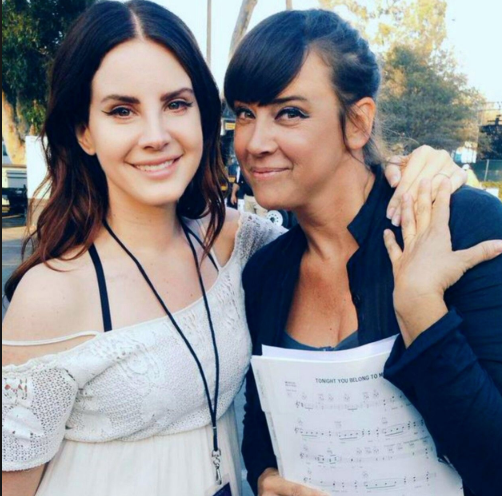After Cat Power served a little time opening for the European leg of Lana Del Rey’s LA to the Moon Tour (the best date of which was arguably Antwerp, based on the ensemble alone), it became even clearer that the correlation between LDR’s sonic origins–she has often stated that Cat Power was an influence when she was just beginning to cultivate her, at the time, very germinal sound–were tied to the great and frequently underrated Charlyn “Chan” Marshall, whose debut album, Dear Sir, came out in 1995, when then “Lizzy” was just ten years old.
As Cat Power’s work progressed into the early and mid-00s, most notably with 2006’s The Greatest, Lana’s, conversely, was rather just beginning, with her no frills MySpace page being put up in February of 2006 (at that time citing Britney Spears as an influence–one that also remained undercuttingly present as she fully developed her sound). Accordingly, when looking at the music landscape of these years, it was evident that there weren’t may women marrying alt-rock with pop to form an at least somewhat neo-baroque effect. For Lana, the only person to fill that void was Cat Power (who likely filled even more of a void when her cover of “Sea of Love” became a source of poseur obsession thanks to appearing on the Juno Soundtrack). With all of this taken into consideration, it could have only been deemed inevitable that Cat Power and Del Rey should ultimately find themselves collaborating (stranger things have happened–like Del Rey doing a duet with Stevie Nicks).
The lyrical composition almost incestuous–a who can tell who wrote what line between the two sort of thing–Cat Power declares, “Your money’s like a weapon, a tool to get me/You think I’m like the other ones/Well, my money’s like a weapon (weapon), tool for me/No, I’m not like those other ones/A cage is like a weapon, a tool for me.” It’s as though Lana is subtly adding “Lights, camera, acción/don’t need your money, money, money, to get me what I want.” This allusion to female independence also iterates another recent track of the same name by a certain Kesha (“I buy my own things, I pay my own bills…I’m a motherfuckin’ woman”). Cat Power’s determination to use the congenital prison all women are born into as a result of the confinement of being a second class gender as a source of power for her rage rather than a hindrance to her advancement is a theme perhaps more recent in Del Rey’s own work, as she held off on becoming overtly political until Lust for Life (an era in which she also stated she would no longer perform “Cola” as it name checks Harvey Weinstein, and where would the sensitivity to the #MeToo victims be in that?). That Del Rey has also caused controversy of late for performing in the always fraught with political meaning Israel also speaks to her increasing fearlessness with regard to making bolder statements with her work than merely, “He hit me and it felt like a kiss.” One would like to believe that Cat Power’s longstanding influence has been an aid with this.
As Cat Power releases what will be her tenth studio album, Wanderer (a title that could just as easily pass for a Del Rey record), it brings one hope for the future and evolution of the trajectory of Cat Power’s own roundabout protégée, who was, unlike Cat Power, so quick to be written off by the media at the outset of what is turning out to be an iconic career (that’s the drawback about the more “instantaneous” nature of fame, you’ve got to surrender to everyone waiting in line to put you on the chopping block with their think pieces).
Both rich and crude (in its simplicity) at the same time, Cat Power’s voice combines seamlessly, almost untraceably with Del Rey’s. Interestingly, the song, at times, feels like a follow up to her 2003 track, “Good Woman,” in that it is a more assured and declarative narrative about the plot of a female’s life. “Good Woman” also echoes certain sentiments of “Bad Woman” from Lykke Li’s so sad so sexy with, “I don’t want be a bad woman/And I can’t stand to see you be a bad man I will miss your heart so tender/And I will love This love forever/And this is why I am leaving.” In “Woman’s” case, none of that tragic relationship bullshit is a factor, as Cat Power mocks, “See your thoughts runnin’ in circles/And walk around all day long, followin’ me.”
Lana (who always laments being bad) is but barely detectable background throughout the song, the aspect perhaps most telling of all of her deference–a testament to her reverence for a goddess of what was once called indie music. What’s more, Del Rey was once very much in the “I’m Not A Girl, Not Yet A Woman” category (with any songs–e.g. “Sad Girl”–always employing the less grown up iteration of the word for female). It is in this fashion that the single seems to signal some shift in Del Rey’s own career more than it does Cat Power’s.





















